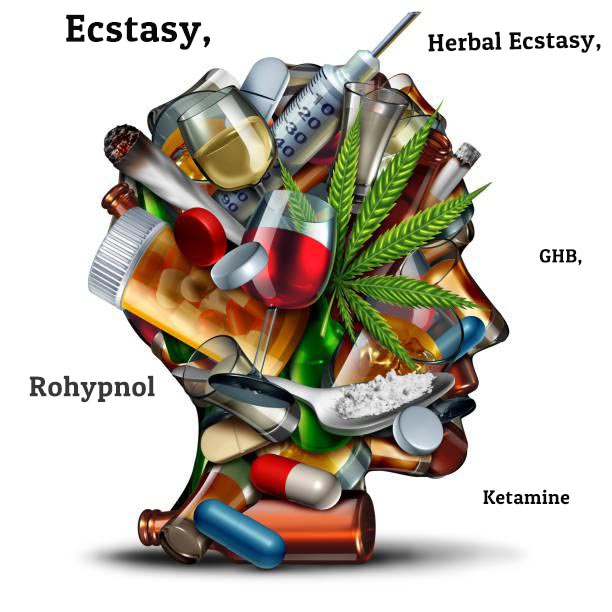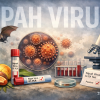Goa is abuzz with excitement as vintage bike and car owners, users, collectors and fans are decking […]

SUBSTANCE ABUSE AND ITS EFFECT ON GEN-Z! By Dr Shazia Shaikh
MIND & BODY, HEART & SOUL, Oct 05- Oct 11 2024 October 4, 2024DRUGS and substance abuse are common terms referring to a growing issue in contemporary society. “Drugs!” – the one word expletive if one hears it gives most of us the shivers and forms creases on the forehead of parents. For today – like a cancer — drug abuse is spreading rampantly with youth today or so called generation Gen-Z. Drug abuse not only leads to severe health hazards but also compromises with the moral social structure and foundation of our society and communities.
It’s essential to explore the roots of this issue. Its impact on young people and the moral questions raised about freedom and potential solutions to mitigate the crisis. Substance abuse refers to the harmful or hazardous use of psychoactive substances which includes illicit drugs — commonly known as opioids, cocaine, marijuana and also the synthetic drugs which have become increasingly accessible.
The global issue of drug addiction and substance abuse/misuse is fuelled by multiple factors like stress, peer pressure, easy access. Most importantly it is the inability to handle stress – the young people of today want to escape harsh reality and there is this inability to navigate their emotions in a right direction. Possibly due to a lack of knowledge, faith in their family members, in God, in prayers and in sources like clinical counsellors who are there to help them.
UNODC REPORT
THE latest United Nations Office on Drugs & Crime (UNODC) world drug report 2024 highlights concern over the global rise in drug usage and the emergence of potent new synthetic opioids (referring to a class of drugs including synthetic drugs such as pain reliever fentanyl, oxycodone, hydrocodone, codeine, morphine and many more) which are exacerbating the drug problem at large. This is in turn associated with health, social and environmental impacts.
According to the report the number of people using drugs reached 292 million in 2022, a 20% increase over the past decade. Cannabis remains the most widely used drug globally with 228 million users, followed by opioids (60 million users), amphetamines (30 million users), cocaine (23 million users) and ecstasy (20 million users); despite an estimated 64 million people worldwide suffering from drug use disorders, and only one in 11 receiving treatment, with women facing significant barriers with only one in 18 women with drug disorders.
The different forms of substance abuse are to do with heroin, cocaine, crack, hallucinogens, amphetamines, marijuana, alcohol, etc. Substance abuse is taking a significant toll on health issues which in turn lead to anxiety, depression, suicidal tendencies, HIV, various organ failures of liver, brain, etcetera.
SIGNIFICANT TOLL
Psychosocial Impact: Youth addicted to substance abuse often face difficulties in education and relationships which hamper their future career prospects.
Legal & Criminal Consequences – Drug use and abuse also leads to criminal activities and illegal action.
Impact on Morality & Ethics – Drug abuse alters individuals’ decision making capabilities, leading them to act against their ethical and moral beliefs. The pursuit of drugs often leads to dishonest behaviour, broken trust and harm to others and eventually the freedom to choose is corrupted…hence, the morality of freedom gets compromised by causing harm, destroying lives and straining communal resources.
The solutions to redressing substance abuse is not easy but it’s not impossible either. There is a need for hard core efforts requiring persistence, and perseverance; there are different ways of promoting education and awareness and these need to be implemented in schools, colleges and communities. We must educate youth ways to cope with stress, peer pressure and what is crucial –engaging in healthy lifestyles. Be it in sports, arts, studying and understanding religions and their books, a host of recreational activities can help young people to navigate their energy in positive directions. And thus, avoid the temptation of drugs all around them today.
GOVERNMENT & NGOS
THERE are accessible treatment and rehabilitation centers but many addicts hesitate to seek help due to the stigma or financial barriers and both government and NGOs should work towards reducing these barriers. Rehabilitation services should be made easily available to all regardless of whatever the socio-economic status.
Stronger Legal Framework – the government needs to implement strict laws which inhibit supply and consumption of illicit drugs. In conclusion, substance abuse, also known as drugs issues, pose a grave challenge to society and to address these issue it requires a comprehensive approach — education, support, treatment and stringent legal measures. Only through combined efforts can we protect the freedom of wellbeing of future generations from the scourge of substance abuse.
(Dr Shazia Shaikh is from Davorlim, Margao.)














